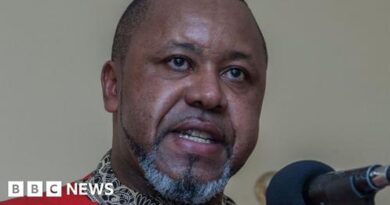Ministry of Mines and Minerals Development Addresses Key Mining Issues in Zambia
The Honourable Minister of Mines and Minerals Development, Hon. Paul C. Kabuswe (MP), alongside esteemed industry representatives, held a press briefing today to discuss critical matters concerning the mining sector in Zambia. The objective of the briefing was to provide the public and the media with updates on the ministry’s initiatives and efforts. Here are the significant highlights from the briefing:
Mopani, a valuable asset owned by the Zambian people through ZCCM-IH, underwent a transition following Glencore’s departure. ZCCM-IH assumed control of the asset and has been actively seeking a new investor. After receiving non-binding offers from four bidders in April/May, the ministry has now received binding offers this week. The government aims to finalize the deal with the selected bidder by 31st July 2023.
KCM’s ownership structure consists of 80% Vedanta Resources (VR) and 20% ZCCM-IH. Following VR’s exit in 2019, the management of KCM was taken over by the provisional liquidator. The government decided to re-engage VR as the majority shareholder to invest in the mine and address outstanding issues. While most matters have been resolved, negotiations are ongoing to address a critical issue to safeguard the interests of the Zambian people.
The Ministry suspended the exploration license of Zambia Gold Company (ZamGold) due to violations. Negotiations between the parties involved are currently underway, and a resolution is anticipated before the end of July 2023.
The ministry has made significant discoveries of Sugilite, a precious gemstone, in two locations in Mansa, with the potential for further findings. To ensure responsible and sustainable exploration and exploitation of this mineral, the ministry is developing a comprehensive strategy.
The ministry is actively implementing initiatives to formalize the ASM sub-sector and promote wider participation across the mining value chain. Through the establishment of mining cooperatives, the ministry aims to encourage illegal miners to contribute to the country’s development through tax compliance. To date, 52 mining cooperatives have been registered by the Ministry of Small and Medium Enterprise Development.
In line with efforts to enhance the regulation of the mining sector, the ministry is undertaking institutional reforms. The establishment of an independent Minerals Regulation Commission is a crucial reform being pursued. The draft legislation for the commission has been finalized and awaits submission to the Cabinet and Parliament.
The ministry has developed a draft strategy aimed at increasing copper production to three million tonnes over the next nine years. Achieving this production target necessitates comprehensive geological mapping and mineral exploration. Resolving outstanding issues with Mopani and KCM is pivotal to expedite copper production.
To support the goal of increased copper production, the government is investing in acquiring geological information. Geological mapping will not only aid in identifying additional mineral resources beyond copper but also leverage opportunities presented by the energy transition. Additionally, the ministry has drafted a strategy focused on critical minerals such as lithium.
The Ministry of Mines and Minerals Development remains steadfast in its commitment to sustainable management of the mining sector and its contribution to Zambia’s economic and social well-being. Through the implementation of various policy and legislative measures, the ministry aims to create formal and sustainable employment opportunities for the people of Zambia, aligning with the 8th National Development Plan. The ministry will continue to provide regular updates on progress and developments within the mining sector.



